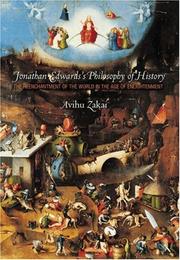| Listing 1 - 2 of 2 |
Sort by
|
Book
ISBN: 1526111934 9781526111937 9780719090950 0719090954 9780719090943 0719090946 1526111926 Year: 2014 Publisher: Manchester ; New York Manchester University Press
Abstract | Keywords | Export | Availability | Bookmark
 Loading...
Loading...Choose an application
- Reference Manager
- EndNote
- RefWorks (Direct export to RefWorks)
Spanish contemporary poetry: An anthology presents a selection of Spanish peninsular poetry from the 1970s to the present day, with an introductory study of the most relevant poetic trends and poetic groups of the period, followed by guided and close readings of each poem. The anthology includes poems by twenty-two authors selected according to their literary rigour and with attention to the relevance of their work, a comprehensive introductory study, notes, thorough individual commentaries to the poems, and lists of selected vocabulary and rhetorical terms that provide accessibility to the anthology. The poetic selection is divided into sections and subsections in order to aid its pedagogical intent, covering: the poetry written during the transition to democracy; the emergence of poetry written by women in the 1980s; the Spanish poetic field of the 1990s; the poetry written at the turn of the new millennium; and some of the youngest voices in Spanish poetry today. English-speaking students working in the field of Hispanic literature, but also a more general reader keen on literature written in Spanish language, should thoroughly enjoy this work.
Spanish poetry --- Spanish literature --- Generación del 27 (Group of poets) --- Spanish contemporary poetry. --- Spanish peninsular poetry. --- Spanish poetic field. --- aesthetics. --- cinema. --- democracy. --- dynamism. --- metapoetry. --- new millennium. --- plastic arts. --- poetic groups. --- poetic trends. --- purism. --- television. --- visual arts. --- visual culture. --- vitality.

ISBN: 0691096546 0691144303 1400825601 9786612087745 1282087746 9781400825608 9780691096544 Year: 2003
Abstract | Keywords | Export | Availability | Bookmark
 Loading...
Loading...Choose an application
- Reference Manager
- EndNote
- RefWorks (Direct export to RefWorks)
Avihu Zakai analyzes Jonathan Edwards's redemptive mode of historical thought in the context of the Enlightenment. As theologian and philosopher, Edwards has long been a towering figure in American intellectual history. Nevertheless, and despite Edwards's intense engagement with the nature of time and the meaning of history, there has been no serious attempt to explore his philosophy of history. Offering the first such exploration, Zakai considers Edwards's historical thought as a reaction, in part, to the varieties of Enlightenment historical narratives and their growing disregard for theistic considerations. Zakai analyzes the ideological origins of Edwards's insistence that the process of history depends solely on God's redemptive activity in time as manifested in a series of revivals throughout history, reading this doctrine as an answer to the threat posed to the Christian theological teleology of history by the early modern emergence of a secular conception of history and the modern legitimation of historical time. In response to the Enlightenment refashioning of secular, historical time and its growing emphasis on human agency, Edwards strove to re-establish God's preeminence within the order of time. Against the de-Christianization of history and removal of divine power from the historical process, he sought to re-enthrone God as the author and lord of history--and thus to re-enchant the historical world. Placing Edwards's historical thought in its broadest context, this book will be welcomed by those who study early modern history, American history, or religious culture and experience in America.
Enlightenment --- Lumières (Philosophie) --- Lumières [Siècle des ] --- Siècle des Lumières --- Verlichting (Filosofie) --- Enlightenment. --- History --- Aufklärung --- Eighteenth century --- Philosophy, Modern --- Rationalism --- History, Modern --- Philosophy. --- Philosophy --- Edwards, Jonathan, --- أدوردس، يوناثان --- Edwards, Jonathan --- Contributions in history of philosophy --- Antichrist. --- Apostasy. --- Arianism. --- Arminianism. --- Calvinism. --- Christ. --- Christian Church. --- Christian ethics. --- Christian revival. --- Christian theology. --- Christian. --- Christianity. --- Christocentric. --- Christology. --- Church Fathers. --- Constantine the Great and Christianity. --- Consummation. --- Contingency (philosophy). --- Conversion of the Jews. --- Cotton Mather. --- Deism. --- Deity. --- Disenchantment. --- Divination. --- Divine grace. --- Divine providence. --- Doctrine. --- Dynamism (metaphysics). --- Early modern period. --- Eschatology. --- Ethics. --- First Great Awakening. --- George Whitefield. --- God. --- Good and evil. --- Great Awakening. --- Great chain of being. --- H. Richard Niebuhr. --- Herbert Butterfield. --- Heresy. --- Historical criticism. --- Historiography. --- Ideology. --- Illustration. --- Immanence. --- Infidel. --- John Calvin. --- John Foxe. --- Justification (theology). --- Major religious groups. --- Manifestation of God. --- Materialism. --- Mechanical philosophy. --- Methodism. --- Millennialism. --- Miracle. --- Morality. --- Natural philosophy. --- Natural religion. --- Natural theology. --- Old Testament. --- Omnipotence. --- Omniscience. --- Orthodoxy. --- Pastor. --- Perry Miller. --- Philip Melanchthon. --- Philosopher. --- Philosophical theology. --- Philosophy of history. --- Pietism. --- Piety. --- Plan of salvation (Latter Day Saints). --- Postmillennialism. --- Potentiality and actuality. --- Prophecy. --- Protestantism. --- Puritans. --- Religion. --- Religious conversion. --- Religious experience. --- Religious text. --- Sacred history. --- Salvation History. --- Satan. --- Second Coming. --- Second Great Awakening. --- Secularization. --- Sermon. --- Sinners in the Hands of an Angry God. --- Socinianism. --- Teleology. --- The City of God (book). --- Theology of the Cross. --- Theology. --- Theory. --- Universal history. --- World. --- Writing.
| Listing 1 - 2 of 2 |
Sort by
|

 Search
Search Feedback
Feedback About UniCat
About UniCat  Help
Help News
News